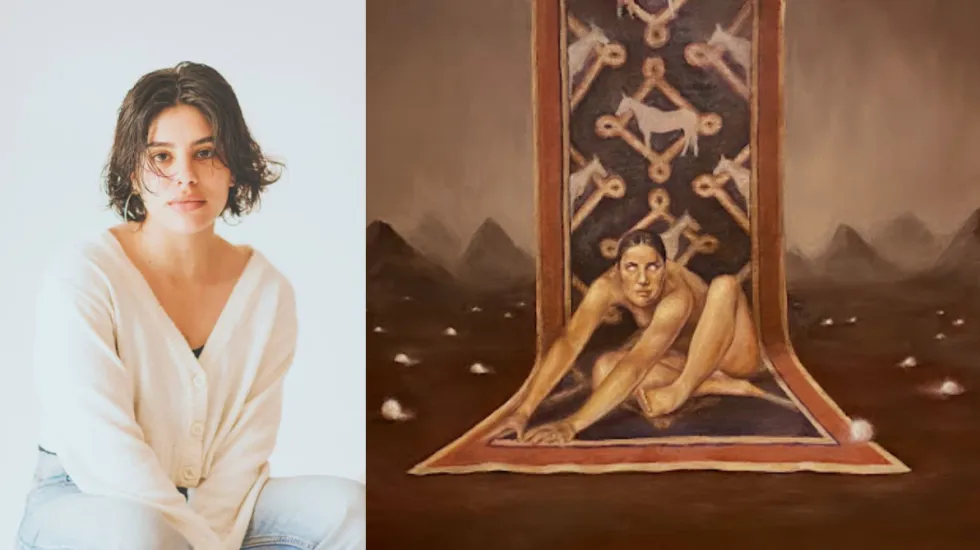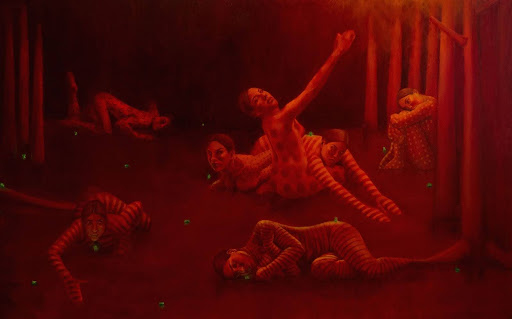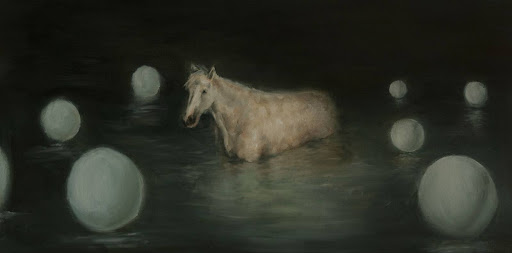Local Talent Spotlight: The Surreal World of Maha
Local Talent Spotlight: The Surreal World of Maha

Maha's love for art began in childhood and has since developed into a lifelong commitment. Her daily routine revolves around creating art, demonstrating her dedication to the continuous process of learning and improvement.
Initially trained in academic realism, Maha found it too constricting and eventually moved to surrealism because it permitted her to venture into the realm of the imagination. Her art is autobiographical but open to interpretation for the viewer, with themes of identity, society, and self-exploration.

Maha’s art focuses on human behavior, identity, origin, and religion. It reveals the complex relationship between the past, present, and future through the use of intricate patterns. She sees these elements as similar to the butterfly effect, where small actions lead to large changes.
As a Jordanian-Palestinian artist, she is cut off from her ancestral homeland, and her art is not bounded by physical borders. Her works depict and also abstract various influences in a way that shows how we are all connected to the earth.
Maha’s work process is intuitive – the ideas come gradually over time. She has a sketchbook that she uses daily and revisits old sketches to create new ideas. She is a person who when stuck in art blocks is patient and seeks inspiration through learning and new experiences.

For Maha, every piece of work is a new opportunity to dive into the depths of painting. Her greatest work to date was a painting measuring 165cm x 250cm and this stretched her as an artist. If she would advise young artists such as herself, her advice would be simple yet profound: “Don’t overthink, paint what you want, do what you want, and do not put unnecessary pressure on yourself.” With this approach, Maha is still making significant strides in the art world and encouraging other artists to do the same.